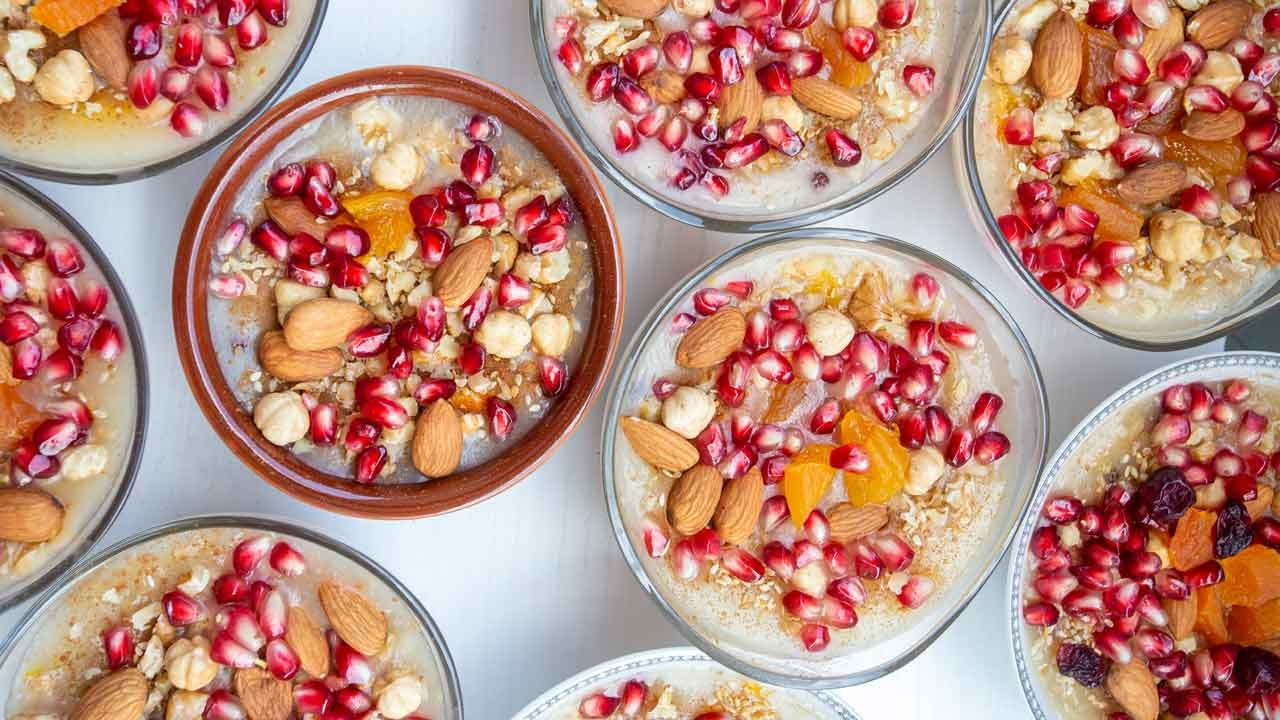The Health Effects of Turkish Desserts: Which One Is Healthier?

Desserts and Health: Syrup-Based or Milk-Based?
Turkish desserts are generally divided into two main categories: syrup-based desserts and milk-based desserts. Syrup-based desserts are often sweetened with sugary syrup, and due to their high sugar content, they can have negative effects on health. Excessive sugar consumption can lead to weight gain, high blood sugar, and even heart diseases. However, these desserts are highly preferred due to the rich taste and consistency that sugar provides.
Health Risks of Syrup-Based Desserts:
- Baklava: Baklava, high in calories and sugar, can contribute to obesity and diabetes if consumed excessively.
- Künefe: With its syrupy, cheesy, and buttery structure, künefe is calorie-dense and excessive fat consumption may harm heart health.
- Revani: This semolina-based cake, when soaked in syrup, might satisfy sweet cravings, but excessive consumption is unhealthy.
Frequent consumption of these types of desserts can lead to an accumulation of excess sugar and calories in the body, which may result in various health problems in the long run.
Milk-Based Desserts: Lighter and Healthier
Milk-based desserts, as the name suggests, are typically made with milk and have a lighter, creamier texture. These desserts are generally prepared with ingredients like milk, sugar, and starch. Milk-based desserts provide essential nutrients like calcium and protein, and they tend to be healthier alternatives with less sugar compared to syrup-based desserts. Thus, milk-based desserts can be considered healthier options.
Health Benefits of Milk-Based Desserts:
- Sütlaç (Rice Pudding): Sütlaç, made with milk and rice, is a digestive-friendly dessert rich in calcium and can be a suitable option for those on a diet due to its low-fat content.
- Muhallebi: With its light and creamy texture, muhallebi not only satisfies sweet cravings but also provides the body with protein and calcium.
- Kazandibi: Known as burnt rice pudding, kazandibi offers a healthier alternative with its low sugar and low-calorie content.
These desserts nourish the body without overwhelming it with excess sugar. Additionally, milk-based desserts are beneficial as they are rich in certain nutrients.
The Health Effects of Desserts: The Decision Is Yours
While each Turkish dessert has different ingredients, there are some key points to consider for health. Syrup-based desserts may satisfy sweet cravings in the short term but can lead to weight gain and other health problems with excessive consumption. On the other hand, milk-based desserts offer a lighter and more nutritious option without overwhelming the body with sugar.
In conclusion, when deciding which Turkish dessert is healthier, the content of the dessert, the frequency of consumption, and portion sizes play an important role. For a healthier lifestyle, it’s better to consume desserts in moderation and opt for milk-based desserts when possible.










